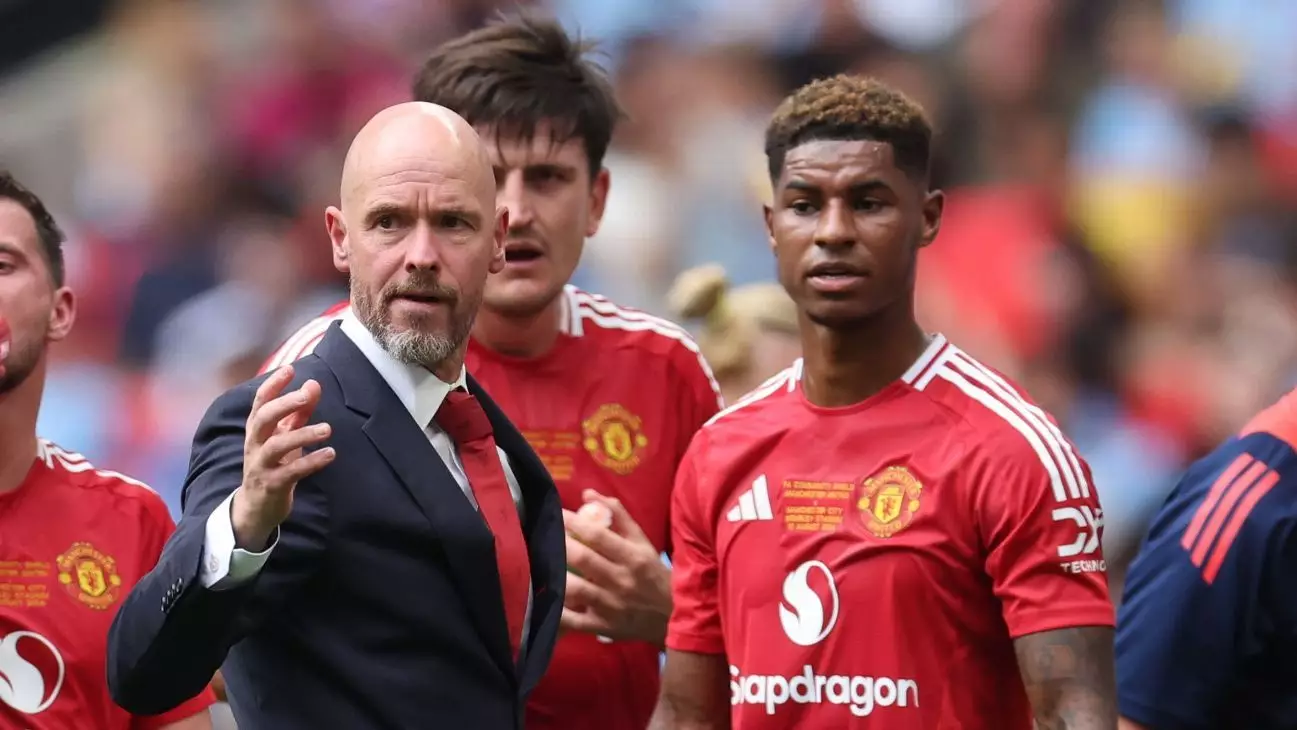Manchester United’s recent performance against Crystal Palace has ignited discussions surrounding the leadership of manager Erik ten Hag, particularly his decision to bench star forward Marcus Rashford. The match, which ended in a disappointing goalless draw, saw United fail to capitalize on a dominant first-half performance, raising questions about tactics and player rotation. Rashford, who had recently hit form with a goal against Southampton and two in a high-scoring victory over Barnsley, found himself on the sidelines, leading many to speculate on the reasoning behind his exclusion from the starting eleven.
The decision to bench a player in good form is always contentious, and considering Rashford’s contributions in previous matches, supporters and pundits alike were left scratching their heads. The only change to the lineup was the introduction of Alejandro Garnacho, who failed to convert crucial chances, heightening scrutiny on Ten Hag’s decision-making process. The focal point of the criticism was not only the outcome of the game but also the tactical rationale that Ten Hag employed, leading to discussions about whether he is making strategic decisions or if there are underlying issues at play.
Management Under Pressure
In the aftermath of the match, Ten Hag was quick to dismiss claims of discord between him and Rashford. Expressing his frustration over “speculation,” he emphasized that his choice was simply a product of squad rotation rather than any personal fallout. His response highlights the delicate balance managers must strike between player welfare and team performance, especially in the high-stakes environment of a club like Manchester United. However, this dismissal does little to quell the whispers among the media and supporters regarding the broader implications of the draw.
As the season progresses, the pressure on Ten Hag to deliver results intensifies. With United languishing in the bottom half of the table after five games, the urgency to find winning combinations becomes paramount. The upcoming fixtures against FC Twente in the Europa League and a highly anticipated clash with Tottenham will serve as critical tests for both the team’s morale and Ten Hag’s tactical acumen.
The Broader Context of Player Rotation
Player rotation is a standard practice in modern football, given the rigorous demands of the season. However, the timing of these decisions can often make or break a manager’s credibility. The debate centers not only on who starts and who sits but also on how these choices impact team cohesion and individual confidence. Are managers like Ten Hag reading their squads effectively, or are they risking relationships with pivotal players in a quest for tactical optimization?
As Manchester United continues to navigate their tumultuous start to the season, every decision made by Ten Hag will be scrutinized. The stakes are high, and as they prepare for future matches, the manager must find a way to consolidate his tactics while maintaining strong player relationships. The outcome of this strategic balancing act will be crucial in determining not just his survival in the role, but also the future direction of Manchester United as a competitive force in both domestic and European competitions.

